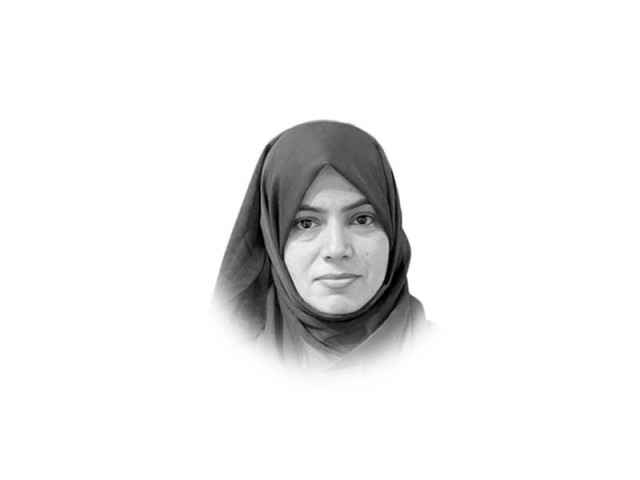Coalition crisis
Familiar scenario involves established parties engaging in backroom dealings to secure their grip on governance

The recent general elections held on February 8th were anticipated as a crucial moment for our country, promising a new era of democratic governance for the next five years. However, despite hopes for a free, fair and transparent electoral process, our expectations have been shattered. The electorate hoped to vote for representatives prioritising people’s interests, yet these aspirations remain unfulfilled. Instead, we find ourselves in a recurring scenario of coalition politics, with the same familiar faces holding positions of power.
This dishearteningly familiar scenario involves established parties engaging in backroom dealings to secure their grip on governance. Leaders of these parties, including PML-N’s Nawaz Sharif, continue to exert influence, vying for government positions both at the Center and in Punjab. Similarly, members of the PPP and other parties boast equally tarnished records, leaving the electorate disillusioned.
Of particular concern is the exclusion of the PTI, a major political force in Pakistan, from the electoral process. Their absence deprives the electorate of a legitimate choice, undermining the democratic principles emphasised by our nation. This stark reality reveals systemic flaws in our electoral system.
Post-election dynamics exacerbate the disillusionment felt by the populace. Independent candidates, backed by PTI, are courted by established parties eager to bolster their numbers and secure a majority.
The ensuing scramble for power has transformed the electoral process into a spectacle, with independent candidates becoming commodities in a marketplace of political influence. The exorbitant expenses incurred during campaigns are recouped through alliances with established parties, cultivating a cycle of corruption.
The consequences of this political maneuvering are dire, with little hope for meaningful progress in our economy. Persistent inflation exacerbates the burden on ordinary citizens, making everyday necessities increasingly unaffordable. Basic utilities, such as gas and electricity, remain unreliable, subjecting the populace to both financial strain and physical discomfort.
The deteriorating state of public health and education highlights the systemic failures of governance. Quality education and adequate healthcare are luxuries reserved for the elite, intensifying inequality and denying opportunities to the masses.
It is evident that the current state of affairs in Pakistan falls far short of the democratic ideals we aspire to uphold. The repetition of past electoral outcomes only emphasises the need for systemic reform and a renewed commitment to genuine democratic principles.
As we reflect on the sorry state of our nation, it is vital that we demand accountability from our leaders and strive for a future where the voices of the people are truly heard and represented in governance. Only then can we begin to realise the promise of a better Pakistan for all its citizens.
A dream of achieving true democracy requires prioritising fundamental factors. Foremost among these is establishing the rule of law as the basis of governance. A supreme rule of law ensures equality and justice for all individuals, irrespective of their status.
Institutions must operate independently, prioritising the welfare of the people. Safeguarding them from undue political interference and empowering them to carry out their mandates effectively is crucial. Autonomous institutions contribute to overall stability and development.
A critical necessity is moving away from entrenched, longstanding politicians. Introducing new, untainted leadership can revitalise Pakistan’s political sphere, better serving the interests of its citizens. This necessitates creating pathways for fresh voices and ideas, breaking the cycle of dynastic politics that often hinders progress.
In essence, realising a better Pakistan with an ideal democracy necessitates prioritising the rule of law, fresh leadership, independent institutions, an impartial judiciary and a redefined role for the military. Through concerted efforts and a commitment to reform, Pakistan can aspire to achieve its full potential as a prosperous and equitable nation, aligning with developed democracies worldwide.
Published in The Express Tribune, February 27th, 2024.
Like Opinion & Editorial on Facebook, follow @ETOpEd on Twitter to receive all updates on all our daily pieces.














COMMENTS
Comments are moderated and generally will be posted if they are on-topic and not abusive.
For more information, please see our Comments FAQ